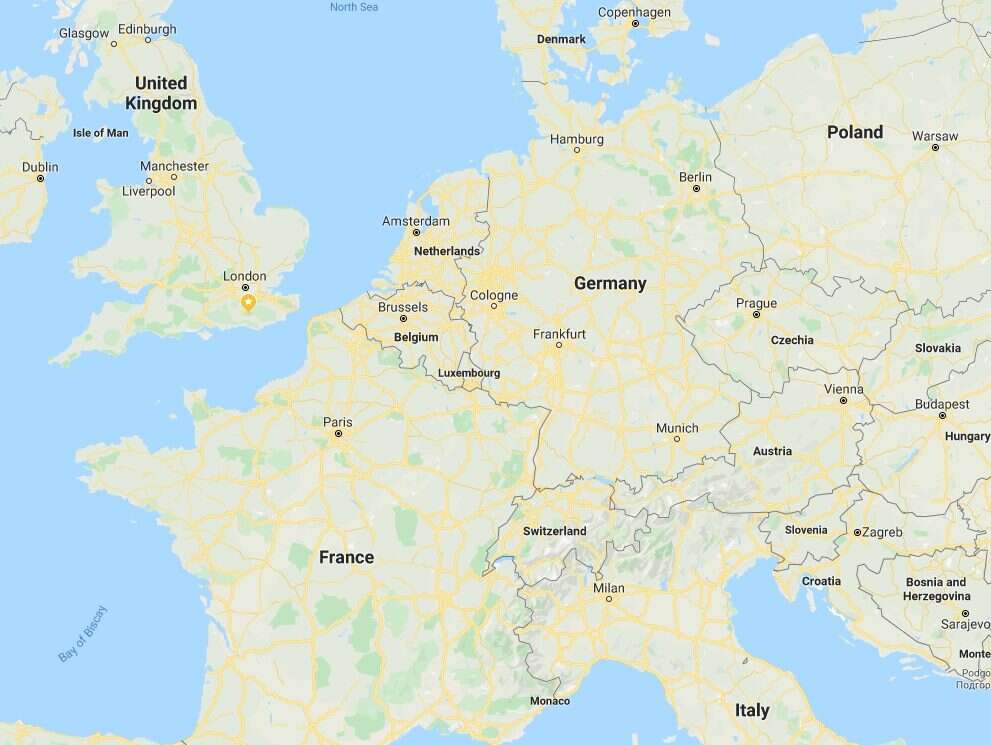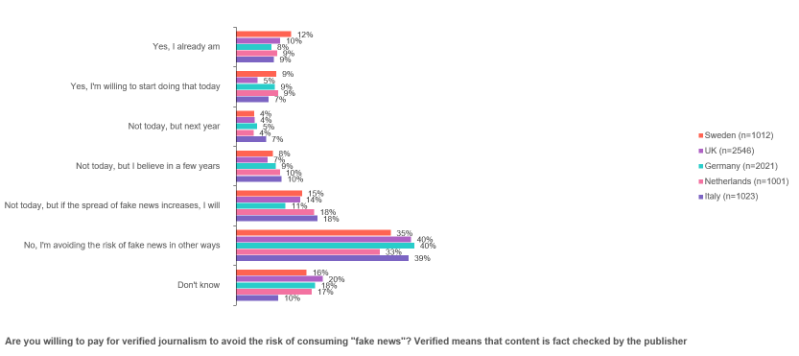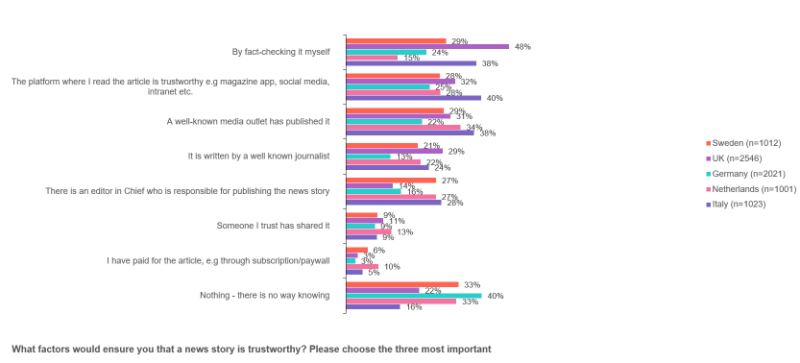
Brits are more worried than their European neighbours about “fake news”, but are the least likely to pay for verified journalism, according to a new Yougov poll.
Almost two thirds (64 per cent) of UK respondents said they were concerned about fake news, higher than in Italy (63 per cent), Germany (56 per cent) the Netherlands (57 per cent), and Sweden (48 per cent).
The average across the five countries surveyed was 59 per cent.
The survey into attitudes towards fake news was commissioned by digital magazine subscription app Readly. It surveyed 7,603 people in total.
Brits were more likely to believe they are being frequently exposed to fake news, with 63 per cent saying they saw such content often or very often. In Germany just 28 per cent said the same.
Brits were also most likely to think fake news will increase in the next two or three years, with 70 per cent saying so. Just three per cent said they thought it would decrease and 14 per cent said the amount of fake news would stay the same.
But asked whether they would be willing to now pay for verified journalism, defined as content that has been fact-checked by the publisher, to avoid fake news, just 15 per cent of Brits said yes.

Survey question: Are you willing to pay for verified journalism to avoid the risk of consuming “fake news”? Verified means that content is fact-checked by the publisher. Picture: You Gov
Ten per cent said they already are, while five per cent said they would be willing to start immediately.
Fourteen per cent said they may pay for trusted journalism if the spread of fake news increases, but 40 per cent said they are avoiding the risk of fake news in “other ways”.
These may include fact-checking themselves, which almost half (48 per cent) of Brits said they do to check whether a news story is trustworthy.
But more than a fifth (22 per cent) said “there is no way of knowing” if they should trust a story.

Survey question: What factors would assure you that a news story is trustworthy? Please choose the three most important. Picture: You Gov
Readly’s UK managing director Ranj Begley said the results showed consumers are “wising up” to fake news “and turning to established content from trusted sources”.
“The research shows that readers are putting intelligent measures in place to filter out the noise,” she went on.
Picture: Google Maps
Email pged@pressgazette.co.uk to point out mistakes, provide story tips or send in a letter for publication on our "Letters Page" blog
